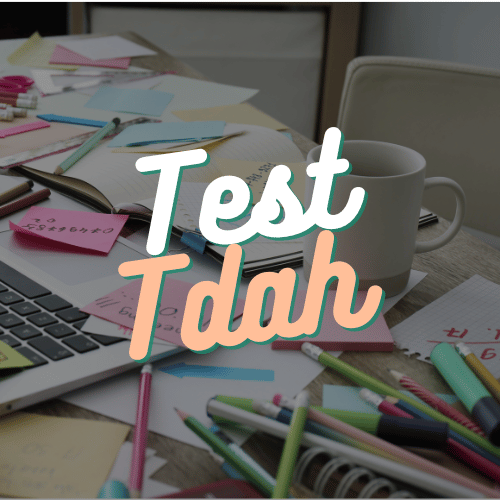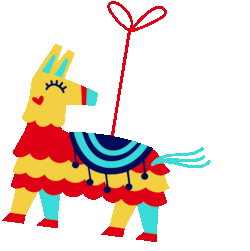Article updated on April 30, 2023
Welcome to Suivez le Zèbre, the first blog dedicated to neurodiversityin France. Here you will find information about HLP (High Learning Potential), hypersensitivity, autism spectrum disorders (including Asperger’s syndrome), DYS disorders and ADHD.
With the release of the series HPI on TF1 a French TV channel, gifted profiles (high learning potential) are in the spotlight! And it’s a good thingbecause at Suivez le Zèbre, we’ve been trying to democratize HIGH POTENTIAL for almost 6 years now!
How do I know if I might be gifted when I don’t feel particularly smart?
At Suivez le Zèbre, we think this is a very legitimate question!
Scientifically, what is being gifted
If we stick to the scientific consensus, to be gifted is: to have abilities clearly superior to the average of the population. Source: Psychologie du Haut Potentiel book, p37.
A person identified as gifted has an IQ above 130 on the WAIS test (scale of 160). In France, this represents 2.3% of the population (1 person out of 44) that is more than 2 standard deviations above the national average located between 90 and 110 on the Gaussian curve.
The WAIS test is administered by a psychologist or neuropsychologist specialised in Giftedness.
Although IQ is the key factor in identifying HPI, theanamnesis (the history of the person) and discussions with the psychologist about cognitive abilities complete the detection.
As we use this single IQ metric through the WAIS in France, then the validation of a gifted person is based on this operational definition of High Potential.

2.3% of the French population is above 2 standard deviations from the norm. 4.8% are above 125; that is to say 1 person out of 21, these thresholds are arbitrary, without biological or cerebral justification . (p40)
On the other hand, cognitive abilities are multiple. Very high scores in some areas (high potential area) may be enough to cause a feeling of deviation from the norm. Note that the presence of discrepancies between scores does not call into question the use of the overall raw IQ to identify the presence of high potential at the global level.
source : Psychologie du Haut Potentiel p44-46
Can we clearly attribute characteristics to people with intellectual disabilities?
If we consider the operational definition of High Potential, the signs and characteristics of the profiles simply correspond to having abilities that are clearly superior to the average of the population in different areas. Obviously, the definition is too vague, especially when addressing the general public and people who are questioning, doubting and looking for concrete answers!
How do you know if you have above-average abilities? How to take courage and dare to push the door of a psychologist without having a minimum of information or reassurance before?
With the help of the book: Psychologie du Haut Potentiel (the new giftedness bible), let’s see together what is validated by neuroscientists as being the cognitive abilities attributed to high potential profiles.
Giftedness: signs and cognitive characteristics
The WAIS test that identifies High Potential individuals is based on 4 major indices:
- The verbal comprehension index
- The perceptual reasoning index
- The working memory index
- The Processing Speed Index
Logically, gifted profiles have cognitive abilities that can be identified via these indices because it is these abilities that allow us to estimate and establish the famous IQ that is directly linked to intellectual efficiency:
–verbal comprehension, a good command of language, vocabulary and concepts
– memory (long term)
– processing speed
– strong problem solving skills
–divergent thinking: the ability to produce a large number of ideas from a single starting point
– There is an important metacognition: literally thinking the thought. Metacognition is related to learning ability as well as IQ.
Examples of divergent thinking:
- finding many words that begin with the same letter
- proposing several tracks to solve the same problem
source: Psychologie du Haut Potentiel p161

Today, scientific studies have highlighted several cognitive correlates.
From a cognitive point of view, Giftednessis associated with many particularities due to the fact that intelligence in the most general sense intervenes in the whole cognitive sphere. In all cases, these are average differences in levels, not qualitative differences.
Gifted people have predispositions:
– in creativity
– to some humor tests
-some moral judgment tests
– in divergent thinking
– in critical thinking
– in resisting many (but not all) cognitive biases
– in metacognition
– in some forms of empathy (the most cognitive)
in intuitive intelligence (but not in intuitive cognitive style)
The scientific community agrees that gifted people have a high level of learning ability.
source : Psychologie du Haut Potentiel p154 and p163
As we have just seen, the correlation betweenHigh Learning Potentialand Intelligence is not in doubt. However, in France, we have a real problem with intelligence, which is rather ambivalent and surprising because it is in our country that there is the most research done by the general public on High Potential.
The craze for this subject goes far beyond the medical-professional sphere, as we saw with the success of the TF1 series HPI, 10 million views! The biggest success of the channel in the last 10 years.
Even more surprising is the assertion that the High Learning Potential is innate and that the IQ varies little (if at all) between birth and death of an individual (without illness or accident impacting IQ during life) goes against our social and societal model which advocates equal opportunity and nurtures a school system based on this same premise. Everyone is put on the same footing despite their different functions and different.
This is all the more sad when you consider that the neuroscientists emphasize the correlation between Giftedness and “school or academic performance when it is observed in several intellectual disciplines (mathematics, philosophy, languages, sciences, letters, etc.). The strong link between intelligence and academic success is indeed well established.”
source : Psychologie du Haut Potentiel p164
This observation explains three things: the limits of our French school system, the clichés about Giftedness and the jealousy towards people with high potential who are quickly categorized.
Problem: the majority of gifted people suffer from an imposter syndrome and do not identify themselves as intelligent people but rather see themselves as out of step!
Identify yourself as gifted when you don’t think you’re smart!
This is one of the many reasons I decided to create Suivez le Zèbre in 2017. When I heard about gifted people, I couldn’t identify with them because I didn’t think I was smart or in other words had superior cognitive abilities. On the contrary… I had a hard time finding my place and I always attributed my success to luck or I didn’t consider it as a success but as something normal.
Another point is that I have not always excelled in my studies, I have even repeated two years of school. Not because of difficulty, it’s true, but because of laziness. And finally, the essential reason why I wanted to democratize High Potential and make it accessible to as many people as possible: to reduce the time of awareness.
Our mission: to reduce medical wandering, support and care.
Mel Poinas, Suivez le Zèbre
I found out I was gifted at age 30. Many would say it’s young, but I feel like I’ve wasted precious years and had a bit of a rough go of it before I was detected. So, if thanks to this blog, I can save many of you precious years, I will have succeeded in my mission!
The limit of the scientific literature on giftedness
This is the limitation of scientific books on Giftedness: they do not take into account the human dimension of the quest for identity of individuals affected by a neuroatypia such as HPI. Few people will admit to having above-average abilities, especially women who tend to have a greater impostor phenomenon.
For the past 6 years, on our blog, we have noticed that the profiles that are looking for answers about their identity and arrive on the High Potential track have common characteristics. We assume that people who come to our site are looking for answers. Perhaps the gifted people who don’t question themselves don’t have these characteristics at all! But our site is not for them.
In our experience, here are the signs or personality characteristics identified by Suivez le Zèbre in its gifted readers (since validated and detected by psychologists through a psychological assessment).
When you look closely, the majority of these characteristics are related to the cognitive abilities that were previously discussed in the book: Psychologie du Haut Potentiel.
Signs and characteristics of giftedness (which is our responsibility)
1- an IQ very close to (125) or higher than 130 (on the WAIS test)
2- the need to be stimulated
3- great sensitivity which can sometimes turn into emotionalism when there are difficulties in managing emotions
4- the exacerbated quest for meaning
5- a desire for absolute justice
6- a hyper awareness of its environment
7- fear of rejection
8- A tendency to over-adapt in order to please or to be accepted but which often leads in the long term to exhaustion or a depreciation of one’s image and thus to an identity crisis
8- fast and divergent thinking (tree thinking has never been scientifically proven). The ability to make connections is one of the strengths of high potential people
9- Resilience, a capacity to adapt very quickly
10- a hyper awareness of its environment and an increased resonance with others (humans, animals, nature)
11- intolerance to stupidity, disrespect, stupidity and mediocrity
12- a problem with authority (especially when it is considered illegitimate)
13- a vision of a world where all individuals and living things are interconnected
14- a great capacity to question, to doubt, to change point of view and to adapt
15- sometimes the ability to synesthetize (not the case for all gifted people)
16- for some, hyperesthesia
17- the tendency to procrastinate because we can feel overwhelmed by all these ideas or projects
18- generally speaking, a brain that works at full speed and rarely takes a vacation!
To avoid the barnum effect, you can ask yourself the following question: how intensely do I live and feel these characteristics?
Giftdeness: Intensity of Life!
Personally, I think it is this particular characteristic that will really define a gifted person: intensity!
In gifted people, we find this ability to make connections, to create projects, to want to move forward, to think, to exchange and it never stops!
We can also meet people with overflowing emotions! A bit like Morgane in the TF1 HPI series. Emotions seem almost uncontrollable as if it were impossible to contain themThey must be expressed at all costs. This characteristic would even be more common in people with ADD/ADHD. Attention deficit disorder with or without hyperactivity. Again, the link does not seem far-fetched when we know thatone out of threegifted people may also have ADD/ADHD.
Some gifted people are also annoying that terribly endearing, a duality that is quite common in these profiles: emotion on the skin and a gymnastic mind that never takes a break! In any case, if there is any doubt, the best way to be sure is to be accompanied by a specialized psychologist in order to carry out an assessment.
Thanks for reading, Mel
You find yourself in the characteristics of HPI, what if we tried a first approach together?
You can also find more information, resources and tools on High Potential in Mel POINAS‘ book . With a lot of humor, Mel tells the story of the discovery of her High Potential and the routines she put in place to finally find her place!

Le livre
Écrit par une HPI !
Un témoignage et des solutions concrètes pour découvrir, comprendre et apprendre à vivre en étant HPI.

To go further, you can read
- The best books about High Learning Potential
- Impostor’s syndrome
- How to take the WAIS 4 test?
- How to tell others we are gifted?
- Giftedness and Hypersensitivity
- Our book Suivez le Zèbre














